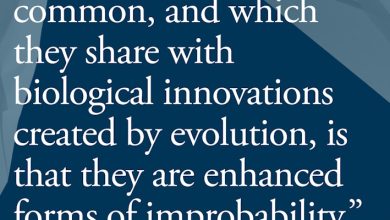Blockchain Technology: A Vision for Decentralized Governance

- Understanding the Basics of Blockchain Technology
- Exploring the Potential of Decentralized Governance with Blockchain
- Challenges and Opportunities in Implementing Blockchain for Governance
- The Role of Smart Contracts in Decentralized Governance
- Case Studies: Successful Applications of Blockchain in Governance
- Future Implications of Blockchain Technology on Governance Models
Understanding the Basics of Blockchain Technology
Blockchain technology is a revolutionary concept that has the potential to transform various industries, including finance, supply chain management, and healthcare. At its core, a blockchain is a decentralized, distributed ledger that records transactions across a network of computers. Each transaction is stored in a “block,” which is then linked to the previous block, creating a chain of blocks – hence the name “blockchain.”
One of the key features of blockchain technology is its transparency and security. Because each block is linked to the previous one and encrypted, it is nearly impossible to alter the data stored on the blockchain. This makes blockchain technology ideal for applications where data integrity is crucial, such as in financial transactions or voting systems.
Another important aspect of blockchain technology is its decentralized nature. Unlike traditional centralized systems, where a single entity controls the data, blockchain networks are distributed among multiple nodes, making it more resilient to cyber attacks and tampering. This decentralized governance model ensures that no single entity has control over the entire network, promoting trust and transparency among users.
In addition to its security and decentralization, blockchain technology also offers greater efficiency and cost savings. By eliminating the need for intermediaries in transactions, blockchain can streamline processes and reduce transaction fees. This can be particularly beneficial in industries like cross-border payments, where traditional methods are slow and expensive.
Overall, blockchain technology represents a paradigm shift in how data is stored and transactions are conducted. Its decentralized, transparent, and secure nature has the potential to revolutionize governance systems across various sectors, paving the way for a more efficient and trustworthy future.
Exploring the Potential of Decentralized Governance with Blockchain
Decentralized governance utilizing blockchain technology has the potential to revolutionize the way organizations operate. By leveraging blockchain’s transparent and immutable nature, decision-making processes can be democratized, ensuring transparency and accountability.
One key advantage of decentralized governance with blockchain is the elimination of intermediaries. This reduces the risk of corruption and manipulation, as transactions are recorded on a public ledger that is accessible to all participants. This fosters trust among stakeholders and promotes a more inclusive decision-making process.
Furthermore, blockchain technology enables smart contracts, which are self-executing agreements with the terms of the contract directly written into code. This eliminates the need for third-party enforcement and streamlines decision-making processes. Smart contracts can automate routine tasks and ensure compliance with pre-defined rules, enhancing efficiency and reducing costs.
In addition, blockchain technology allows for the tokenization of assets, enabling fractional ownership and increased liquidity. This opens up new possibilities for fundraising and investment, as well as providing a mechanism for incentivizing stakeholders to participate in governance processes.
Overall, decentralized governance with blockchain has the potential to empower individuals and communities by giving them greater control over their own affairs. By leveraging the security and transparency of blockchain technology, organizations can create more inclusive and efficient governance structures that better serve the needs of their stakeholders.
Challenges and Opportunities in Implementing Blockchain for Governance
Implementing blockchain for governance presents both challenges and opportunities for organizations and governments. While the technology offers increased transparency, security, and efficiency, there are also hurdles to overcome in its adoption.
- One of the challenges in implementing blockchain for governance is the need for widespread education and understanding of the technology. Many decision-makers may not fully grasp how blockchain works and how it can benefit governance processes.
- Another obstacle is the potential resistance to change from those who are comfortable with traditional governance systems. Convincing stakeholders to embrace a decentralized approach can be a significant challenge.
- Ensuring data privacy and security is also a concern when implementing blockchain for governance. While the technology offers enhanced security features, there is always a risk of cyber attacks and data breaches that need to be addressed.
Despite these challenges, there are numerous opportunities in implementing blockchain for governance. The technology has the potential to streamline bureaucratic processes, reduce costs, and increase trust between citizens and government institutions.
- Blockchain can enable more efficient voting systems, reducing the likelihood of fraud and manipulation in elections. This can lead to increased voter turnout and confidence in the democratic process.
- Smart contracts on blockchain can help automate and enforce agreements between parties, reducing the need for intermediaries and enhancing the speed and accuracy of transactions.
- Blockchain can also facilitate greater transparency in government operations, allowing citizens to track how public funds are being spent and hold officials accountable for their actions.
The Role of Smart Contracts in Decentralized Governance
Smart contracts play a crucial role in decentralized governance by automating processes and ensuring transparency and security. These self-executing contracts are coded on the blockchain and automatically execute when predefined conditions are met. This eliminates the need for intermediaries and reduces the risk of fraud or manipulation. Smart contracts can be used to govern various aspects of decentralized organizations, such as voting mechanisms, fund allocation, and decision-making processes.
By using smart contracts, decentralized governance systems can operate efficiently and autonomously, without the need for human intervention. This not only streamlines operations but also reduces costs and increases trust among participants. Smart contracts enable decentralized organizations to enforce rules and policies in a transparent and tamper-proof manner, ensuring that decisions are made fairly and in accordance with predefined protocols.
Furthermore, smart contracts can help address issues of accountability and compliance within decentralized governance structures. By automating processes and recording transactions on the blockchain, smart contracts provide an immutable audit trail that can be used to verify the legitimacy of decisions and actions taken by the organization. This level of transparency can help build trust among stakeholders and ensure that the governance system operates in a democratic and accountable manner.
Overall, smart contracts are a powerful tool for enhancing decentralized governance systems by enabling automation, transparency, and accountability. By leveraging the capabilities of blockchain technology, decentralized organizations can create more efficient, secure, and trustworthy governance structures that empower stakeholders and promote decentralized decision-making.
Case Studies: Successful Applications of Blockchain in Governance
Several case studies have demonstrated the successful application of blockchain in governance, showcasing the potential of this technology to revolutionize how decisions are made and implemented. These examples highlight the transformative power of blockchain in creating transparent, secure, and efficient systems for governance.
- One notable case study is the implementation of blockchain in voting systems. By leveraging blockchain technology, governments can ensure the integrity and security of the voting process, reducing the risk of fraud and manipulation. This decentralized approach to voting not only enhances trust in the electoral system but also increases voter turnout.
- Another successful application of blockchain in governance is in the management of public records. By storing important documents and information on a blockchain network, governments can prevent data tampering and unauthorized access. This not only improves data security but also streamlines administrative processes.
- Blockchain has also been used to facilitate transparent and accountable supply chains in various industries. By tracking the provenance of goods and ensuring compliance with regulations, blockchain technology enables governments to monitor the flow of goods and services more effectively. This level of transparency helps to combat corruption and unethical practices.
Overall, these case studies demonstrate the immense potential of blockchain technology in transforming governance systems. By embracing blockchain, governments can enhance transparency, security, and efficiency in decision-making processes, ultimately leading to more accountable and responsive governance.
Future Implications of Blockchain Technology on Governance Models
As blockchain technology continues to evolve and gain traction, its future implications on governance models are becoming increasingly evident. This innovative technology has the potential to revolutionize traditional governance structures by introducing new levels of transparency, accountability, and efficiency.
One of the key advantages of blockchain technology in governance is its ability to create immutable and transparent records of transactions. This can help prevent fraud, corruption, and manipulation of data, leading to more trustworthy and reliable governance systems. Additionally, blockchain can streamline processes, reduce bureaucracy, and lower costs associated with governance, making it more accessible and efficient for all stakeholders.
Moreover, blockchain technology enables decentralized decision-making processes by removing the need for intermediaries and central authorities. This shift towards decentralized governance models can empower individuals and communities to have more control over their own affairs, fostering greater inclusivity, diversity, and participation in decision-making processes.
Overall, the future implications of blockchain technology on governance models are promising. By leveraging the unique features of blockchain, such as transparency, security, and decentralization, governments and organizations can create more resilient, responsive, and accountable governance systems that better serve the needs of their constituents.



